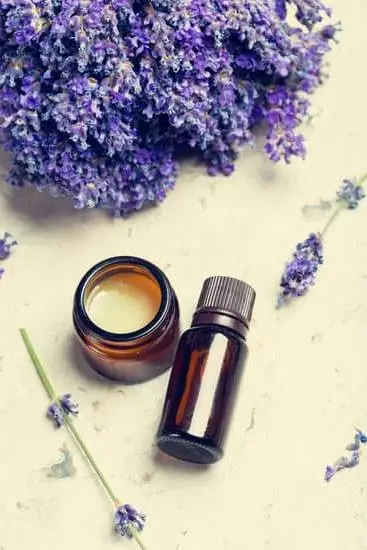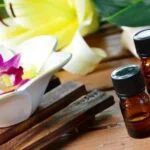Struggling to get a good night’s sleep? Learn how to use aromatherapy for sleep and improve your overall sleep quality. Aromatherapy is an age-old technique that uses essential oils to promote relaxation and improve wellbeing. In this article, we will explore the basics of aromatherapy and its benefits for sleep, as well as provide practical tips on choosing the right essential oils, methods of application, creating a relaxing environment, and incorporating aromatherapy into your bedtime routine.
Aromatherapy is a holistic healing treatment that uses natural plant extracts to promote health and well-being. The practice dates back thousands of years, with roots in ancient civilizations such as Egypt, India, and China. By harnessing the power of essential oils derived from plants, aromatherapy can help reduce stress, anxiety, and insomnia by promoting relaxation and improving mood. Understanding the basics of aromatherapy is crucial in using it effectively for better sleep.
A key aspect of using aromatherapy for better sleep is choosing the right essential oils. Essential oils are highly concentrated extracts from plants that have been used for their therapeutic properties for centuries.
Whether you’re looking to calm your mind, ease restlessness, or alleviate insomnia symptoms, certain essential oils can be particularly effective for improving sleep quality. In the next section, we’ll discuss some of the best essential oils to use for promoting better sleep and how they can be used effectively.
Choosing the Right Essential Oils for Sleep
Aromatherapy has been used for centuries as a natural way to promote relaxation, relieve stress, and improve sleep quality. One of the key components of aromatherapy is the use of essential oils, which are derived from plants and have specific properties that can aid in promoting better sleep. When it comes to using aromatherapy for sleep, choosing the right essential oils is crucial to achieving the desired results.
Here Are Some Popular Essential Oils Known for Their Sleep-Inducing Properties
- Lavender: Known for its calming and soothing effects, lavender essential oil is often used to promote relaxation and improve sleep quality.
- Chamomile: Chamomile essential oil is well-known for its gentle sedative properties, making it a popular choice for addressing insomnia and restlessness.
- Ylang Ylang: This sweet and floral essential oil is prized for its ability to reduce stress and anxiety, making it an excellent choice for improving overall sleep quality.
Other Essential Oils That Can Be Beneficial for Sleep Include
- Bergamot
- Sandalwood
- Cedarwood
When choosing essential oils for promoting better sleep, it’s important to consider individual preferences and sensitivities. Some people may find certain scents more relaxing or pleasant than others, so experimenting with different oils can help identify the most effective options.
By selecting high-quality essential oils known for their sleep-inducing properties, you can create a customized aromatherapy blend that helps you relax and unwind before bedtime.
Ultimately Best approach should be guided by a knowledgeable holistic health practitioner who can advise on the best options based on your individual needs. It’s also important to always do a patch test before applying any new essential oil directly onto your skin.
Different Methods of Aromatherapy Application
Aromatherapy can be a great natural way to improve sleep quality and promote relaxation. There are different methods of aromatherapy application that you can use to achieve these benefits. One popular method is using an essential oil diffuser, which disperses the scent of the essential oils throughout the air in your home. This allows you to experience the benefits of aromatherapy while going about your daily activities.
Another method is direct inhalation, where you simply open a bottle of essential oil and take a few deep breaths to inhale the scent. This method is quick and convenient, making it easy to use aromatherapy for sleep even when you are on the go or traveling. You can also apply essential oils topically by diluting them with a carrier oil and rubbing them onto your skin, such as on your wrists or temples.
When using aromatherapy for sleep, it’s important to choose the right method that works best for you and fits into your lifestyle. Experimenting with different methods can help you find the most effective way to incorporate aromatherapy into your bedtime routine.
| Method of Aromatherapy Application | Description |
|---|---|
| Essential Oil Diffuser | A device that disperses the scent of essential oils throughout the air. |
| Direct Inhalation | Taking deep breaths directly from an open bottle of essential oil. |
| Topical Application | Diluting essential oils with a carrier oil and applying them onto the skin. |
Creating a Relaxing Environment for Aromatherapy
Creating a relaxing environment is essential when using aromatherapy for sleep. The atmosphere in which you use essential oils can greatly impact their effectiveness in promoting relaxation and restful sleep. One way to create a relaxing environment is by using a diffuser to disperse the aroma of the essential oils throughout the room. This can help set the mood for relaxation and prepare your mind and body for sleep.
Another method to create a relaxing environment for aromatherapy is by using candles. Certain scented candles, such as lavender or chamomile, can enhance the calming effects of aromatherapy and provide a gentle, soothing ambiance. Be sure to place them in safe locations and never leave them unattended while they are burning.
In addition, consider incorporating calming elements such as soothing music, dim lighting, or cozy blankets into your aromatherapy routine. These small touches can further enhance the relaxation benefits of aromatherapy and help you unwind at the end of the day. By creating a serene environment, you can maximize the efficacy of using aromatherapy for sleep and improve your overall quality of rest.
| Relaxing Environment Elements | Description |
|---|---|
| Diffuser | Dispenses essential oil aroma throughout the room |
| Scented Candles | Enhance calming effects and provide a soothing ambiance |
| Calming Elements (music, lighting, blankets) |
Best Aromatherapy Techniques for Better Sleep
When it comes to using aromatherapy for better sleep, there are several techniques that can be particularly effective. These methods can help you make the most out of your essential oils and create a soothing atmosphere conducive to quality rest. Here are some of the best aromatherapy techniques for better sleep:
- Diffusion: One of the most popular methods for using essential oils is through diffusion. This can be done using a variety of devices such as ultrasonic diffusers, nebulizing diffusers, or even simple reed diffusers. By dispersing tiny molecules of the essential oil into the air, diffusion can help create a calming environment that promotes relaxation and sleep.
- Topical application: Applying essential oils directly to the skin is another effective way to use aromatherapy for sleep. This could involve diluting the essential oil with a carrier oil and massaging it onto specific points of the body, such as the temples, neck, wrists, or soles of the feet.
Not only does this method allow for direct absorption of the oil’s beneficial properties, but it also provides a gentle warming sensation that can further induce relaxation. - Inhalation: Inhaling essential oils through steam inhalation or simply by taking deep breaths of the scent can also have a positive impact on sleep quality. This method allows for quick absorption and delivery of the oil’s compounds to the bloodstream and brain, where they can have a calming effect on both mind and body.
Exploring these different techniques can give you valuable insight into how to use aromatherapy for sleep in ways that best suit your personal preferences and needs. Whether you prefer diffusion throughout your bedroom, topical application before bedtime, or simple inhalation throughout the evening, finding what works best for you will ultimately lead to improved sleep quality.
Aromatherapy Blends for Insomnia and Restlessness
Understanding the Best Essential Oils for Insomnia
When it comes to using aromatherapy for insomnia, there are a few essential oils that have been found to be particularly effective. Lavender oil is one of the most popular choices for promoting relaxation and sleep. Its soothing scent has been shown to lower heart rate and blood pressure, allowing the body to enter a state of calm conducive to sleep.
Another excellent option is chamomile oil, which has natural sedative properties that can help quiet the mind and promote restful sleep. Additionally, oils such as valerian root, bergamot, and sandalwood are known for their ability to induce relaxation and relieve anxiety, making them ideal choices for an insomnia-fighting aromatherapy blend.
Creating Your Own Aromatherapy Blend
To create your own aromatherapy blend specifically tailored to combat insomnia and restlessness, you can combine a few drops of different essential oils known for their calming effects. For example, you could mix 2 drops of lavender oil with 1 drop of chamomile oil and 1 drop of bergamot oil. By blending these oils together, you can create a powerful insomnia-fighting concoction that will help ease your mind and body into a state of deep relaxation conducive to sleep.
Using Your Aromatherapy Blend
Once you’ve created your custom aromatherapy blend for insomnia, there are several ways you can use it to improve your sleep quality. You can add a few drops of the blend to an essential oil diffuser in your bedroom before going to bed, allowing the calming aroma to fill the air as you prepare for sleep.
Alternatively, you can dilute the blend with a carrier oil such as jojoba or coconut oil and apply it topically to pulse points on your body, such as your wrists or temples. This allows the relaxing scent of the oils to be absorbed into your skin, promoting feelings of tranquility and helping you drift off into a peaceful slumber.
Incorporating these custom blends into your bedtime routine can provide immense relief from insomnia and restlessness while providing you with much-needed restorative sleep.
Incorporating Aromatherapy Into Your Bedtime Routine
Creating a Bedtime Ritual
Establishing a consistent bedtime ritual can signal to your body that it’s time to wind down and prepare for sleep. Adding aromatherapy to this routine can further enhance the relaxing atmosphere. Consider incorporating activities such as gentle yoga, meditation, or reading before bed, and combine these with the use of essential oils for a holistic approach to better sleep.
Using Essential Oils for Nighttime Relaxation
When incorporating aromatherapy into your bedtime routine, it’s important to choose the right essential oils that are known for their relaxing properties. Lavender, chamomile, and cedarwood are popular choices due to their calming effects on the mind and body. Diffusing these oils in your bedroom or applying them topically (diluted with a carrier oil) can help create a tranquil environment that promotes deep sleep.
Enhancing Your Sleep Environment
In addition to using essential oils, consider other elements that can enhance your sleep environment. Using a diffuser or oil burner can disperse the aroma throughout the room, while soft lighting and soothing music can further contribute to a peaceful atmosphere. It’s also important to keep your bedroom cool, quiet, and free from distractions to ensure optimal conditions for restorative sleep.
Incorporating aromatherapy into your bedtime routine is just one way to take advantage of its benefits for improved sleep quality. By combining the use of calming essential oils with relaxation techniques and creating a supportive sleep environment, you can set the stage for more restful nights and better overall well-being.
Other Tips and Tricks for Using Aromatherapy to Improve Sleep Quality
Incorporating aromatherapy into your bedtime routine can significantly improve sleep quality, but there are also other tips and tricks that you can utilize to maximize its effectiveness. One important aspect to consider is the timing of your aromatherapy session.
It’s best to start using essential oils at least 30 minutes before bedtime to allow the scent to permeate the room and create a relaxing environment. Additionally, experimenting with different blends and methods of application can help you find what works best for you when it comes to using aromatherapy for sleep.
Another tip for utilizing aromatherapy for better sleep is to practice deep breathing techniques while enjoying the scents of the essential oils. Deep breathing can help calm the mind and body, making it easier to fall asleep naturally. You can also enhance the effects of aromatherapy by incorporating other relaxation techniques into your bedtime routine, such as gentle yoga or meditation.
Lastly, consistency is key when it comes to using aromatherapy for sleep improvement. Make it a habit to incorporate aromatherapy into your nightly routine, whether it’s through diffusing essential oils, applying them topically, or adding them to a warm bath.
Over time, you’ll likely notice a positive impact on your ability to fall asleep faster and enjoy a more restful night’s rest. By following these additional tips and tricks along with implementing the best aromatherapy techniques for better sleep, you can create a holistic approach to improving your overall sleep quality.
Frequently Asked Questions
How Do I Use Essential Oils for Sleep?
Using essential oils for sleep can be as simple as diffusing a few drops of lavender or chamomile oil in your bedroom before bedtime. You can also mix a few drops of your chosen essential oil with a carrier oil and apply it to pulse points or the bottoms of your feet.
What Is the Best Aromatherapy for Sleep?
The best aromatherapy for sleep often includes calming and soothing scents such as lavender, chamomile, bergamot, or ylang-ylang. These essential oils are known for their ability to promote relaxation and reduce anxiety, helping to prepare the mind and body for sleep.
How Does Aromatherapy Work for Sleep?
Aromatherapy works for sleep by stimulating the olfactory system and sending signals to the brain, which then affects emotion and memory. Certain scents, like those found in essential oils, can help calm the nervous system, promote relaxation, and create an optimal environment for falling asleep more easily and improving overall sleep quality.

Are you looking for a natural way to improve your health and wellbeing?
If so, aromatherapy may be the answer for you.





